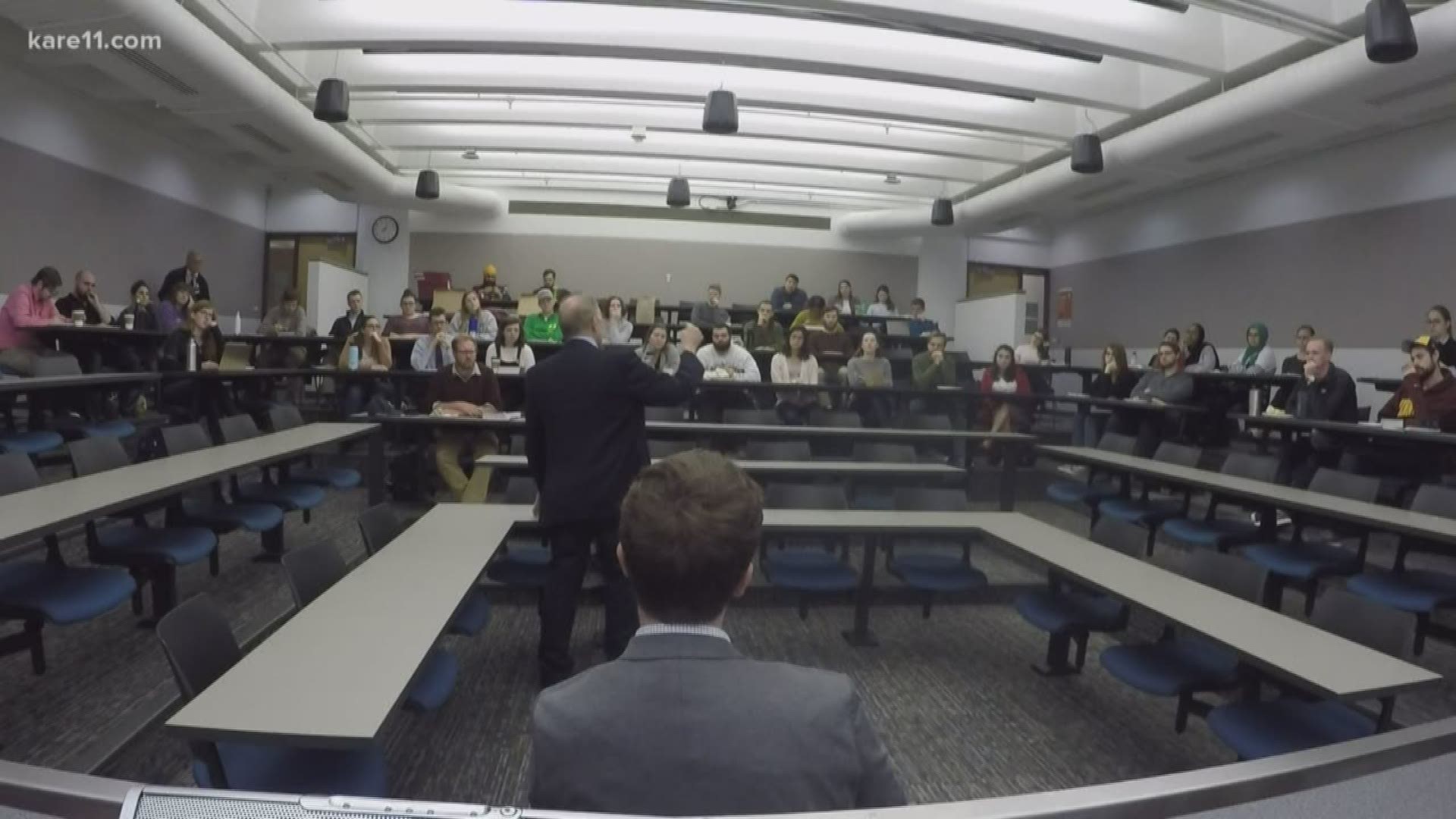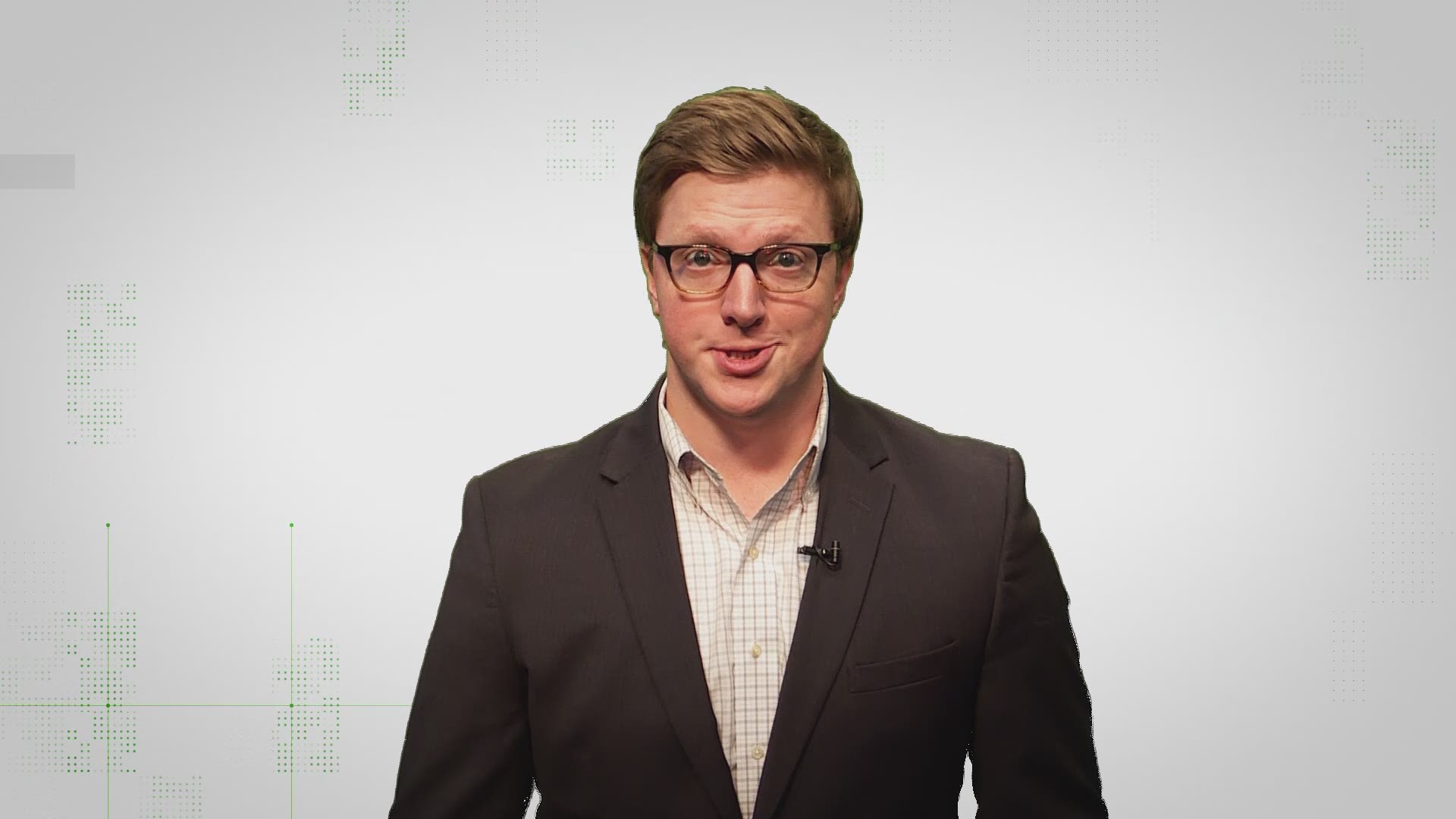MINNEAPOLIS — One thing David Schultz makes abundantly clear: impeachment is more of a political process than an actual criminal proceeding.
Schultz, who teaches management and political science at Hamline University and law classes at the U of M, says there are no clear standards about what types of presidential behavior qualify "high crimes and misdemeanors" -- the impeachable offense.
"It’s always been driven, the impeachment, by the opposition party and so it has a lot of these elements that look very partisan and very political," Schultz explained.
"And that could be, in part, why there has not been a successful impeachment and conviction so far in the history of our nation."
If the US House decides to impeach President Trump, he would be only the third president to be impeached, in addition to Andrew Johnson in 1868 and Bill Clinton in 1998. But impeachment is the equivalent of an accusation.
A president can't be removed from office unless the US Senate votes to convict on the impeachment charge. Johnson and Clinton both remained in office because they weren't convicted by the Senate.
Richard Nixon resigned while the House was preparing to impeach him over the Watergate burglary cover-up, but before members had a chance to vote.
The United States Constitution lays out the ground rules for impeachment -- a house committee must draw up "articles of impeachment" spelling out the charges. It only takes a simple majority vote in the US House to pass the articles of impeachment, but it requires a two-thirds majority in the Senate to convict.
"At the end of the day, it’s a question about political judgment," Schultz told KARE.
"Does a majority of the House, and two-thirds of the Senate believe that, perhaps in this case, that Donald Trump is no longer fit, or shouldn’t be fit to be president of the United States?"
House Speaker Nancy Pelosi has asked six committees to investigate the President Trump's efforts to persuade Ukrainian President Volodymyr Zelensky to investigate former Vice President Joe Biden, and whether that could be interpreted as inviting a foreign power to influence a US election.
Schultz said the Constitution requires the Senate to conduct a trial, with the Supreme Court's chief justice presiding, before taking a vote on whether to convict. But her asserts there's nothing in the rules that require a vote -- only that a vote can't happen without a trial.
"The constitution does require that the vote come after a trial, but we also don’t know what that trial has to look like," Schultz said.
"And Senate Majority Leader Mitch McConnell could decide simply not to put it to a vote."
No set timeline
Schultz says the Constitution doesn't set a firm time line for how long the House can take to conduct an impeachment inquiry or formulate the articles of impeachment. He said the House Democrats could wait until after the primary season, in an effort to put the political squeeze on McConnell and his Senate Republican majority.
"Getting closer to the general elections, so that Trump is potentially facing a trial and the Senate has to decide how it wants to handle that," Schultz remarked.
"Does the Senate hold a trial? Does the Senate not hold a trial, and let the president run for office having been impeached but not acquitted?"
President Trump has insisted there's nothing illegal or impeachable about his request that Ukraine reopen the investigation into Burisma or launch a new investigation in the Joe and Hunter Biden, information that came to light based on a whistleblower's summary of a phone call between Trump and Zelensky.
The president continues to campaign hard -- including a rally set for Thursday at Target Center in Minneapolis -- and has tried to turn the tables on Democrats by touting the theory that the Bidens were involved in Ukrainian corruption.
In 2016, then-Vice President Biden and other European leaders had called for the removal of a Ukrainian prosecutor, Viktor Shokin, who was involved in the investigation of the Ukrainian natural gas company Burisma.
Biden's son, Hunter Biden, was on the board of directors of Burisma. But Shokin's investigation focused on activities from 2014, before the younger Biden joined the Burisma board.
Shokin, and his successor, Yuriy Lutsenko, never made any high-level corruption convictions against Burisma. And there is no hard evidence to support the Trump Administration's theory that Joe Biden used his power as vice president to shield his son from an investigation.
Trump, on the other hand, has drawn fire for at least appearing to delay military aid to Ukraine until he received a commitment from that nation to delve into the Bidens' role in Burisma and corruption investigations that were later shelved.
Those House committees investigating the president's actions include Judiciary, Intelligence, Oversight and Reform, Foreign Affairs, Financial Services and Ways and Means.


